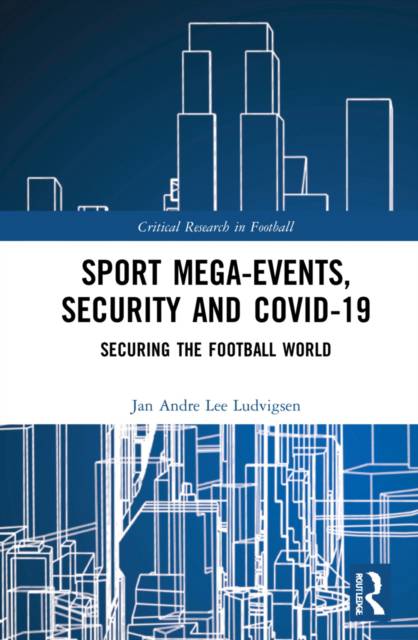
- Retrait gratuit dans votre magasin Club
- 7.000.000 titres dans notre catalogue
- Payer en toute sécurité
- Toujours un magasin près de chez vous
- Retrait gratuit dans votre magasin Club
- 7.000.0000 titres dans notre catalogue
- Payer en toute sécurité
- Toujours un magasin près de chez vous
Description
This book examines contemporary issues of security at sports mega-events (SMEs). It focuses on the 2020 UEFA European Football Championship (Euro 2020) - subsequently postponed to 2021 - the third biggest SME in the global sporting calendar and a unique multi-city, multi-country event that took place in the eye of the COVID-19 storm.
Drawing on stakeholder interviews, policy documents, media sources and existing research, the book explores the constructions, meanings, and perceptions of security in the efforts to secure this football mega-event. It argues that Euro 2020 is a powerful case through which to better understand wider security governance and security-related processes in present-day societies, which are increasingly preoccupied with notions of 'security', 'safety' and 'risk'. It assesses the precautionary logic and transnational knowledge transfer processes that guide security constructions surrounding SMEs in an uncertain and threat-conscious world, and captures the dramatic moments in which COVID-19 transitioned into a security threat with severe impacts on the world of football and well beyond. Sport Mega-Events, Security and COVID-19 advances existing debates in the sociology of football and sport, offering a critical understanding of security and safety in the modern world, and giving an insight into the changing 'new normalities' of security between 9/11 and the COVID-19 pandemic through the lens of global sport.
This is a fascinating reading for anybody with a professional or academic interest in sport management, event management, football, security studies, policing, risk and crisis management, the sociology of sport, the sociology of surveillance, or political science.
Spécifications
Parties prenantes
- Auteur(s) :
- Editeur:
Contenu
- Nombre de pages :
- 166
- Langue:
- Anglais
- Collection :
Caractéristiques
- EAN:
- 9781032192734
- Date de parution :
- 08-04-22
- Format:
- Livre relié
- Format numérique:
- Genaaid
- Dimensions :
- 152 mm x 236 mm
- Poids :
- 376 g

Les avis
Nous publions uniquement les avis qui respectent les conditions requises. Consultez nos conditions pour les avis.






